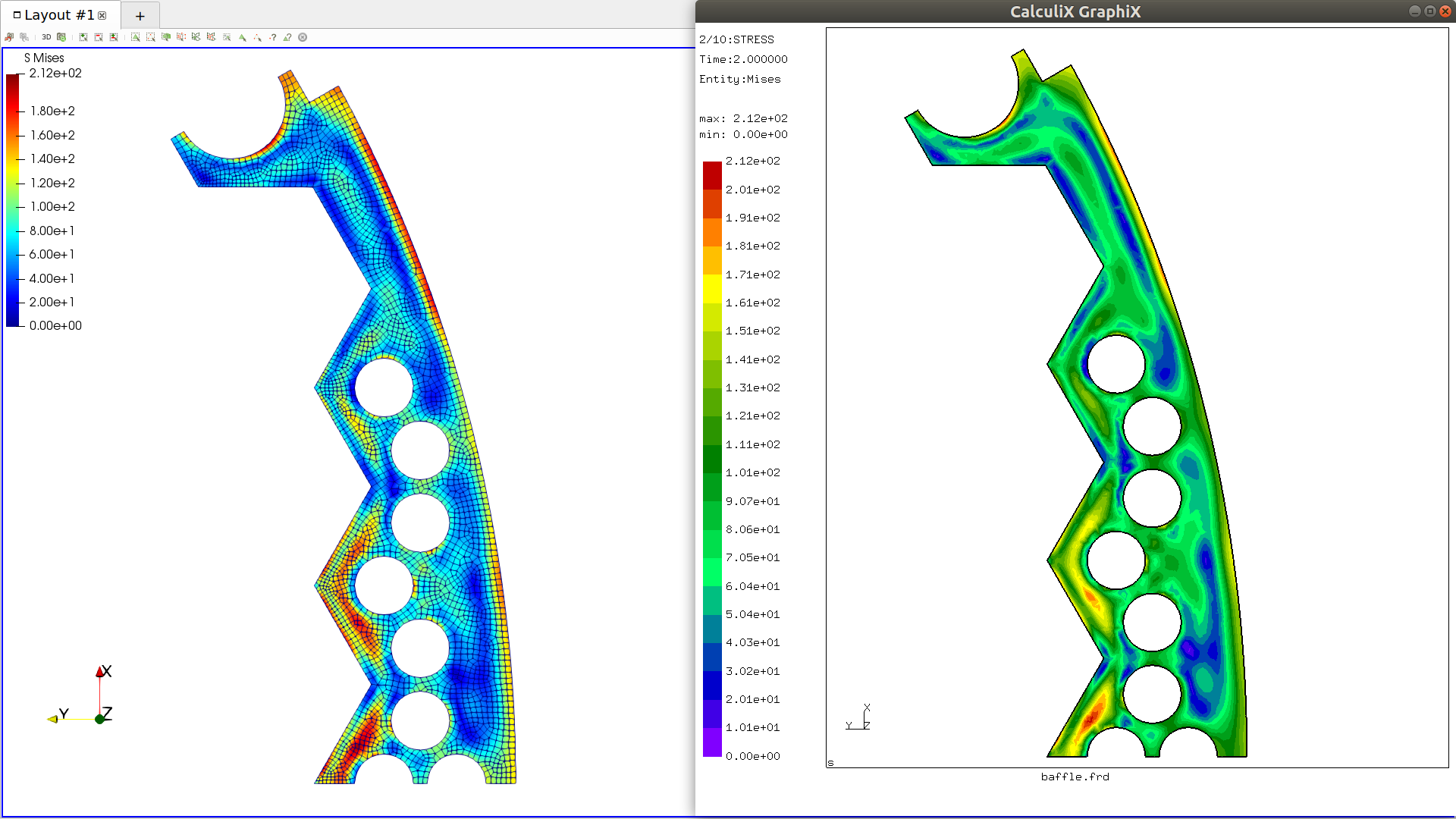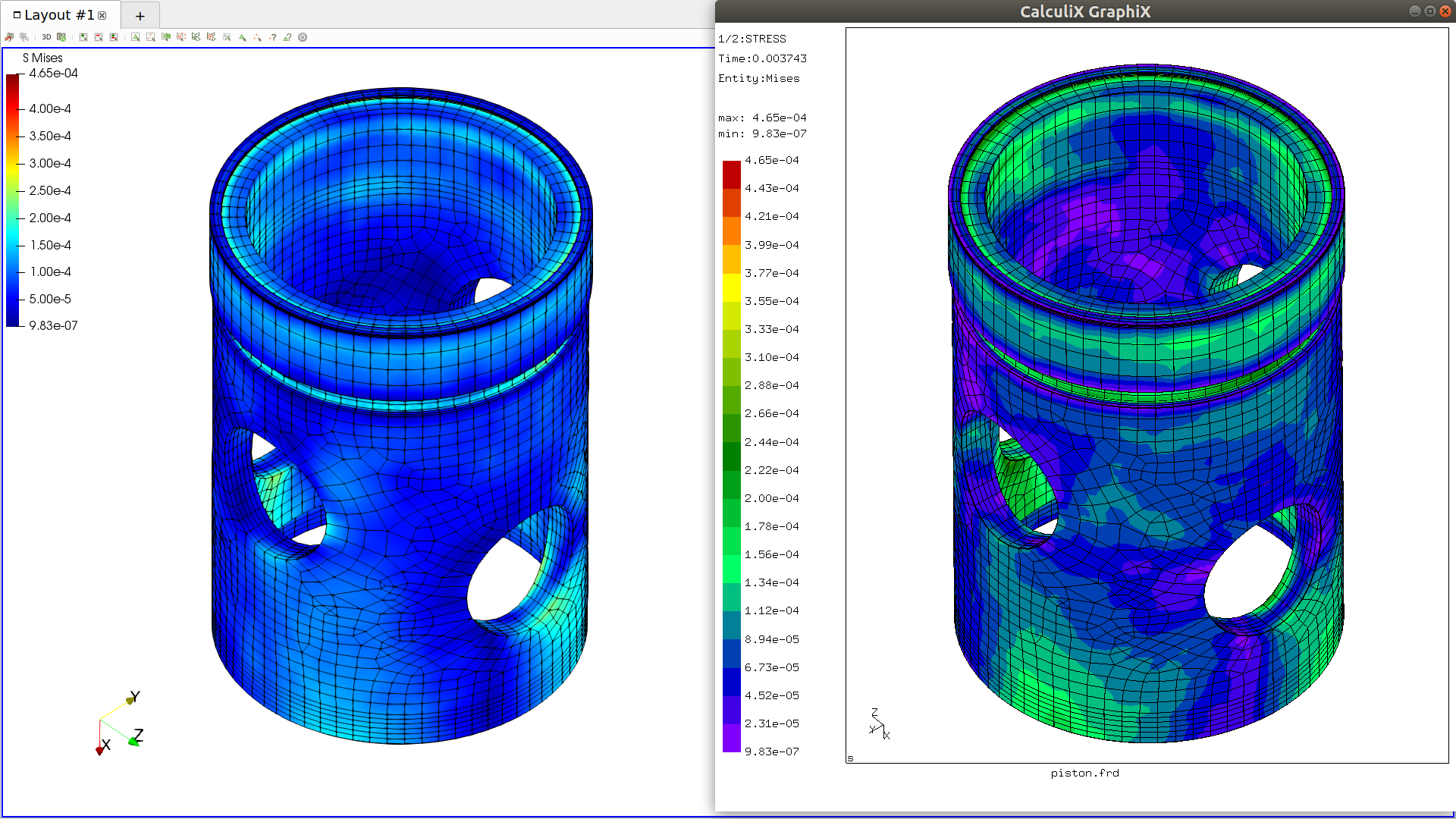© Ihor Mirzov, January 2020
Distributed under GNU General Public License v3.0
Downloads | How to use | Screenshots | Your help | For developers
Converts CalculiX .frd-file to view and postprocess analysis results in Paraview. Generates Mises and Principal components for stress and strain tensors.
The script generates separate file for each output interval - it makes possible to animate time history. Caution! If you have 300 time steps in the FRD, there will be 300 Paraview files. If you need one file - write output only for one step in your CalculiX model.
I'm testing the script and trying to reduce processing time as much as possible. As for me now it's quite optimized and fast. But Python itself is slower than C/C++. Here we can do nothing, so, for example, Calmed converter must be faster - another question is if it's able to convert any model. This script should.
Converter is tested for all official CalculiX examples - folder examples contains convertion results. Each test contains .inp-task + .frd-calculation + .vtk and .vtu convertion results.
Download binaries from the releases page. Binaries don't need to be installed.
Run binary with commands:
in Linux: ./ccx2paraview jobname.frd vtu
./ccx2paraview jobname.frd vtk
in Windows: ccx2paraview.exe jobname.frd vtu
ccx2paraview.exe jobname.frd vtk
It is recommended to convert .frd to modern XML .vtu format. If you have more than one time step there will be additional XML file created - the PVD file. Open it in Paraview to read data from all time steps (all VTU files) at ones.
Running this converter from source is not recommended, because sources are under development and may contain bugs.
Unfortunately, VTK format doesn't support names for field components. So, for stress and strain tensors components will be numbered as:
0. xx
1. yy
2. zz
3. xy
4. yz
5. zx
6. Mises
7. Min Principal
8. Mid Principal
9. Max Principal
Please, you may:
- Simply use this software and ask questions.
- Share your models and screenshots.
- Report problems by posting issues.
To run this converter from source you'll need Python 3 with numpy:
pip3 install numpy
The main script is ccx2paraview.py:
python3 ccx2paraview.py jobname.frd vtu
To convert .frd to legacy ASCII .vtk format, use command:
python3 ccx2paraview.py jobname.frd vtk
Create binary with pyinstaller (both in Linux and in Windows):
pip3 install pyinstaller
pyinstaller ccx2paraview.py --onefile

